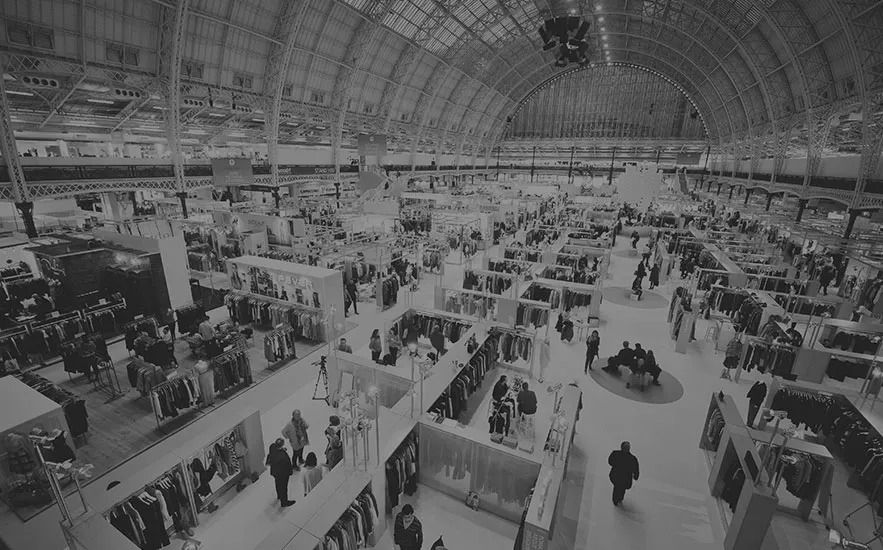STRONGER TOGETHER: KEY INSIGHTS FROM THE AEO & AEV SUMMIT
)
In a climate of economic uncertainty, shifting trade relationships and changing customer expectations, collaboration between event organisers and venues is paramount. That’s why senior leaders from across the industry gathered at Ashridge House for the AEO & AEV CEO summit – exploring how collective thinking can drive resilience, relevance and long-term growth.
Co-hosted by AEO and AEV, the summit focused on building stronger partnerships between organisers and venues to protect individual businesses, enhance the entire customer journey and safeguard the future of live events.
From economic and political shifts to the need for clearer industry messaging and brand-led thinking, the day offered valuable insights. Here are the key takeaways.
Economic update: Tariffs, two-speed growth and financial pressuresPeter Arnold, UK chief economist at EY, offered a frank assessment of the current economic landscape.
Trade dynamics are shifting. Once a champion of free trade, the US is raising tariffs across many sectors, moving from 2% to 10–15%. The UK has secured slightly better terms (around 8–9%), but costs are still rising. Combined with higher oil and gas prices, driven by Middle East conflict, global markets remain unstable.
Equity markets, initially cautious, are now showing signs of recovery, but bond markets remain under pressure due to rising US borrowing costs, fuelled by strong GDP growth.
Spain and Poland are outperforming thanks to tourism, construction and efficient energy use. By contrast, the UK’s recovery remains slow. GDP growth sits at around 1%, with only a modest increase forecast. A ‘two-speed economy’ is emerging, where some sectors are thriving but the broader economy lags behind.
While mass redundancies have been avoided, unemployment is creeping up (now 4.8%) and interest rates remain high. Some relief is expected as rates drop to around 3–3.5% in the coming months.
Despite these challenges, there are signs of cautious optimism. The UK’s international reputation is improving, and growth could exceed expectations. However, with a £25bn deficit looming, tax reforms remain a real possibility; including potential changes to wealth and capital gains taxes, and continued freezes on income tax thresholds.
Political update: A government playing the long gameChris Lee of Cavendish Advocacy reflected on the first year of the new Labour government. A younger, more diverse leadership team is in place, pursuing a long-term strategy focused on:
- Pro-business and pro-innovation policies
- Closer EU alignment
- Strategic intervention in key industries
- Regional investment and growth
- Resetting international trade relationships
While the strategy is clear, quick wins are scarce, and public patience is already showing signs of wear. This year’s Labour conference will be a test of delivery over promises.
For businesses, the message is: prepare for closer EU ties, increased strategic oversight and sustained focus on regional development.
Industry insights: A sector ready to step forwardThe business events industry has long fought to secure recognition at the national level. That’s why news that the DCMS Select Committee will hold a dedicated hearing on business events - selected from over 250 applicants - marks more than just a symbolic milestone. It’s a signal that government is starting to take the sector seriously.
But this new attention brings fresh responsibility. As Matthew Morrison highlighted, now is the time to sharpen how we present ourselves. If we want to influence policy and unlock future opportunities, we need a stronger, clearer industry narrative – one that focuses less on challenges and more on success stories. The publishing industry offers a model here, having shifted its communications to champion achievements and future potential.
Brand strategist Bev Churchill built on this message, urging event leaders to think beyond operational delivery and apply brand thinking across every touchpoint.
Retail’s experience post-COVID provides a powerful warning. Many brands disappeared because they failed to differentiate – stuck in what Churchill called the ‘unremarkable middle’. Events risk the same fate unless organisers clearly define why they exist, who they serve, and what sets them apart.
Bev’s actionable advice is:
- Know why you exist and who you serve
- Be clear on your unique value
- Anchor decisions to your ‘north star’
In her words: “Brand is what you promise, what you deliver, how you communicate, and how you make your audience feel.”
From government to customers, how we present and position our industry has never mattered more. The parliamentary hearing may put business events on the national agenda – but it’s how we tell our story, and how we live that story through every experience, that will determine whether we stay there.
Final thoughtsIn a world of economic uncertainty and political change, the CEO summit reinforced a clear message: collaboration is essential, but so is clarity.
As the UK events sector gains long-overdue recognition, now is the time to think strategically, communicate successes and deliver experiences that resonate far beyond the event floor. By unifying our voice and embracing brand-led thinking, we can influence policy, shift perceptions and secure sustainable growth for the future.



